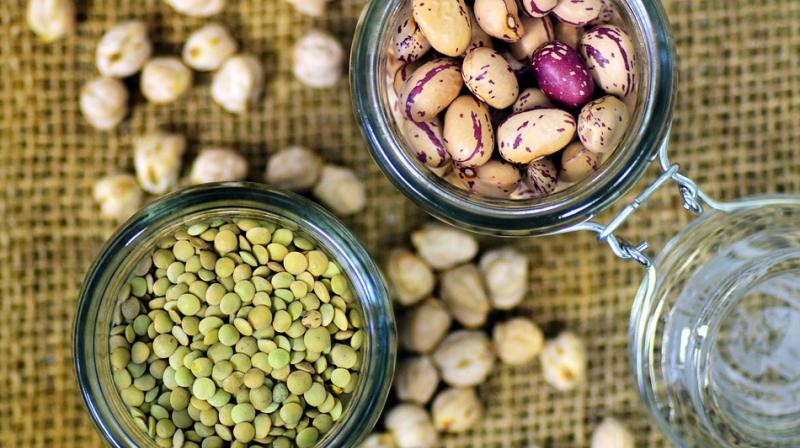Here's what you should eat to beat diabetes
From greens, pulses and legumes, here are right dietary requirements to reverse effects of diabetes.

The effects of diabetes can be eased and even reversed through changes in the diet, say experts. In fact, by switching to a healthy diet, one can start improving their health within a matter of hours.
There are essentially two types of diabetes, both of which are characterized by chronically elevated leves of sugar in blood.
Type 1 occurs if the pancreas stops producing insulin (the hormone that keeps your blood sugar in check), and Type 2 if the body becomes resistant to insulin’s effects.
Type 2 diabetes is primarily caused by a fatty build-up around our muscle and liver cells, and 90 per cent of people who get it are overweight.
Although both forms of diabetes can be controlled through drugs, it is still regarded as a life-shortening condition because of the widespread damage they cause leading to blindness, kidney failure, heart attacks, and stroke.
According to researchers, a plant-based diet may even reverse Type 2 diabetes.
Studies show that dietary changes can enable those who have had Type 2 diabetes for decades to get off all their insulin injections in as little as two weeks.
It seems the more plant-based your diet, the more likely you are to be able to maintain a healthy weight — an important factor in diabetes control.
In studies, even participants who didn’t lose weight when put on a plant-based diet, or even those who gained weight, still appeared to improve their diabetes.
In fact studies across US and Canada found people who cut out all animal products, including fish, dairy and eggs, appeared to have a 78 per cent reduced risk of diabetes. Plant variety is important. The addition of just two different types of fruit and vegetables a week, for instance, has been associated with an 8 per cent reduction in the incidence of Type 2 diabetes.
In fact, the more pulses, beans and legumes one eat, the healthier they may be. Many studies have shown that people who pack their diet with split peas, chickpeas, and lentils tend to weigh less, have slimmer waists and lower blood pressure compared with people who don’t eat many legumes.
In fact, eating chickpeas and other beans is just as effective at slimming waistlines and improving blood sugar as cutting calories. It also improves cholesterol and insulin regulation.
Of all the food groups analysed by a team at Harvard University, greens were associated with the strongest protection against major chronic diseases, including a 20 per cent reduction in risk for heart attacks and strokes offered by every additional daily serving.

